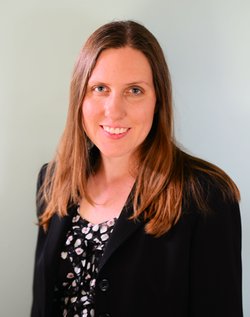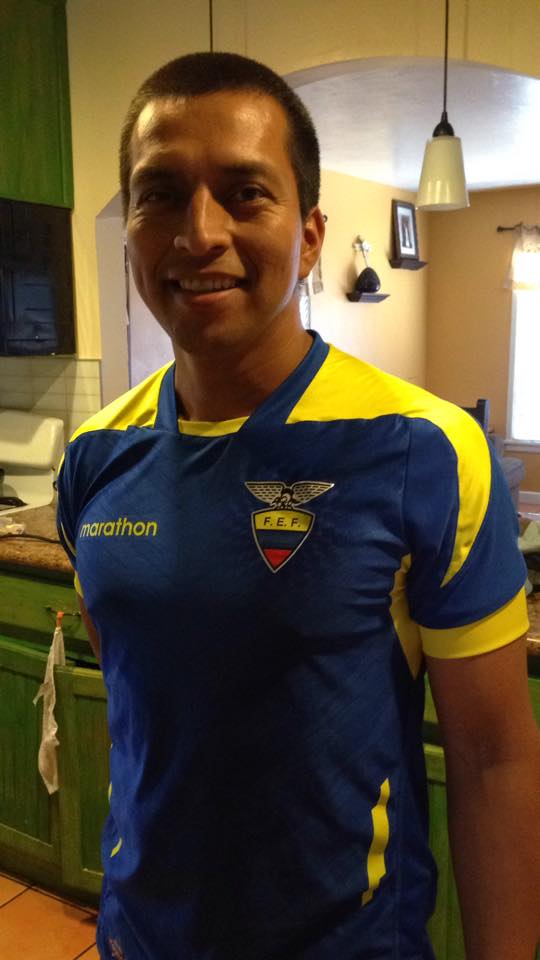
Through the miracle of Facebook, I recently reconnected with William Rojas, a former student (the “Hot William” profiled in my nonfiction memoir In the Shadow of the Volcano: One Ex-Intelligence Agent’s Journey through Slums, Prisons, and Leper Colonies to the Heart of Latin America).
The following is an excerpt from our fascinating conversation.
Maureen: William, I’m so excited to have you as my first interview!
William: I’m excited too!
M: When we met, I was a teacher at a vocational school in Ecuador and you were a 21-year-old student in “sexto grado” (the rough American equivalent of ninth grade). Let’s back up, though. How did you end up at the Center in the first place?
W: My dad got very sick. The doctors couldn’t tell what it was, so they just told my mom to take him home to die. At the time, I was too young to understand what was going on, so they didn’t share too much with me. But since my five older brothers and sisters were already married and had left our house, I was left in charge of my younger siblings. It was very sad to see my dad die slowly in front of me for a whole year.
M: What kind of a man was your dad?
W: Most of the time, he was a good man and a good provider. The only thing I hated about him is that when he drank he became a different person—very violent, almost like he was trying to throw the whole house through the window. One day he beat my mom, and I lost a lot of respect for him. But when I found out my dad was dying, I forgave him. He couldn’t talk or say anything. He was so, so skinny you could literally count his bones. One night, he squeezed my hand, touched my face, and then stopped breathing. I had to tell the rest of my family that our dad died.
M: That sounds like a really difficult time. Is that when you came to the Center?
W: Sort of. I needed a job to support my mom and two younger brothers. Initially, I found a job as a security guard, but they did not pay me well enough to afford the medicine we needed. I was a very proud guy. At first, I thought, I don’t need help from anybody. But I just wasn’t making enough to support our whole family, and my brothers needed to go to school. And, as you know, the Center provides food, medicine, and education.
M: Did that make life easier?
W: At first. But the third year my family was in the Center, my young brother got hooked on drugs. I felt like a failure. Everyone told me that there was nothing I could do to save him and that I should just let him live on the streets, but I was not going to lose my brother. I had lost my dad already, and I had promised my dad to take care of my brothers. I did not want to give up, so I went to the office to speak with Madre Josefina. I told her that I was taking my family out of the Center, but that I was very thankful to them for feeding me and my family for almost three years. I also told her that we would come back after I cured my brother and I asked her to please save a spot for us. I was sobbing. She felt sorry for me and offered to have my brother work with the Center’s doctor, Dr. Juliana.
M: How’s your brother doing now?
W: My brother is doing really well, thank you! He is clean and has three stepdaughters and two of his own. He married Blanca Pesante. Was she a student of yours?
M: No, but her brother was! What a small world…So. do you remember our first meeting?
W: (laughs) In the boys’ bathroom. One of the Center’s rules is that all members have to take a shower every day, and I was on my way to take a shower—cold, since they didn’t have a hot water heater!
M: And I was supervising the cleaning of the boys’ bathroom by some of my students who had misbehaved that week. It was my version of detention. (laughs) And it was probably just as much of a punishment for me as for them—it smelled terrible!
W: Yeah, at first, I was puzzled about what you were doing there, especially with those crazy kids. I think I told you that you had beautiful eyes.
M: (laughs) Yes, you did. It seems like all Ecuadorian men say that to women with blue eyes.
W: Well, the other thing I noticed about your eyes is that they communicated “I am not scared of anything and, if you try to mess with me, you will pay the price.”
M: Wow! My eyes said all that?
W: That’s what I saw, anyway. I didn’t know any other women like that. I saw that you liked to be free and independent. Then you told me that you wanted to have a house husband! That really shocked me. So I decided I needed to ask you more before judging you. I wanted to know why you thought that way.
M: My house husband fantasy didn’t actually come true, you know.
W: It didn’t?
M: Nope. I’m married and have a one-year-old daughter, and my husband is super-helpful, but he actually has a job. Which is probably for the best, actually. (laughs) Okay, fast forward 15 years. You’re now married to a former volunteer and live in Arizona. Tell me how you met your wife, how you came to this country, and what your life is like now.
W: My wife was a volunteer at the Center, but I only met her two months before she went back to the U.S. After that, she went to Tanzania to volunteer for a year. When she finished her year of volunteering, she returned to the U.S. and then applied to bring me here as her fiancé. After three months, we needed to get married before they kicked me out. So, we did! Her parents hadn’t even met me yet. Wow! Crazy, huh?
For more of my conversation with William, tune in next week!


Hi Maureen,
I read, “In the Shadow of the Mountain” several years ago and it is one of those books that really touched me. I heard about it from your cousin Stacy Butler, I used to work with her at the U.W. Veterinary Teaching hospital pharmacy. I will have to read your other books! Hope you are well.
LikeLike